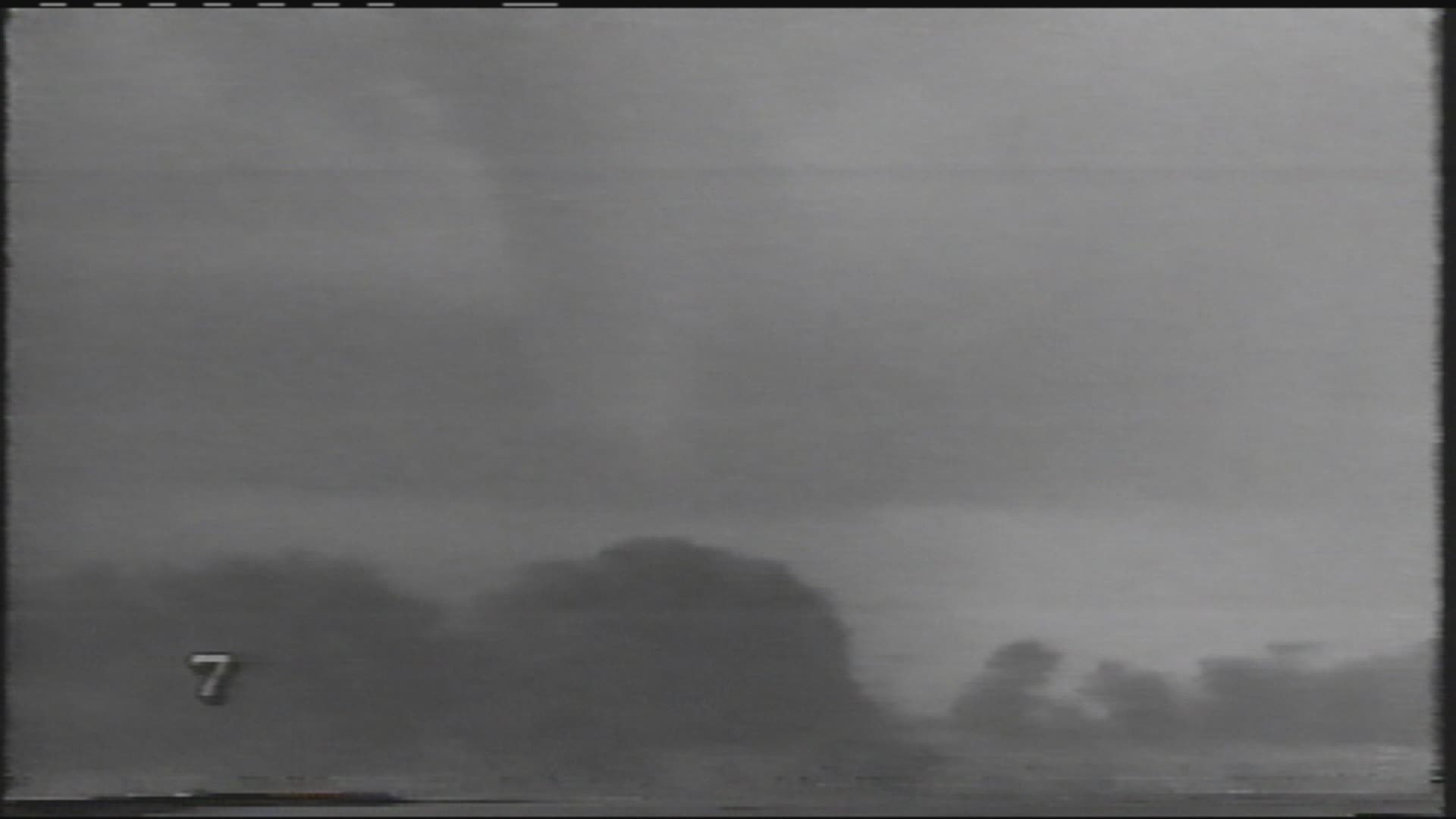Yesterday marked the 65th anniversary of the EF-4 tornado that ripped through Warner Robins that killed 19 and injured more than 300.
We opened our archives to look back at our award winning two-part story from 2008 with people who discussed their memories of the tornado.
The following text is from 2008:
--------
On April 30, 1953, a tornado with winds greater than 260 mph struck Warner Robins without warning.
Since then, there have been advances in technology, forecasting and emergency response, but some say if a storm of that magnitude hits here again, the damage could be far more devastating.
When strong wind gusts rattle Willy Stults’ windchimes, her mind drifts back to that day in 1953.
“The wind was blowing so hard, but I never saw a tornado. I didn’t know anything about it,” said Stults.
When the storm struck, she was headed home from work while a babysitter watched her two young children at her Pleasant Hill home.
By the time she arrived, her house was gone, the babysitter was dead and her two kids were missing.
“I was a little hysterical to begin with. I thought to myself, if you’re going to find these children, you’ve got to calm down. You can’t go around screaming and hollering,” said Stults.
Stults, like hundreds of others, searched for their loved ones, belongings and answers.
They wondered how all this happened in five minutes, with no notice and no warning.
Roddy Nixon, a Robins AFB meteorologist, says that in 1953, radar technology couldn’t detect the tornado.
Now, doppler pinpoints a storm’s path allowing them to activate the base’s warning system at least 10 minutes before it hits.
“They do save lives. Early notification is critical in the process. It does save lives, it’s a proven fact,” said Nixon.
But Robins’ 12 sirens can only be heard a mile outside the gates, leaving the rest of Warner Robins’ 60,000 plus people to depend on television or other forms of alerts.
“The way I see it, if they didn’t have the sirens, they wouldn’t know to look at us,” said 13WMAZ Chief Meteorologist Ben Jones.
Jones says early warning systems play a critical role in driving people to their TVs for potentially life-saving information.
"I always picture it as people out with their families, out with their kids in their yard. They're away from, even in this technological world we live in, we still get away from it when were outside and sometimes just a tone, a sound is enough to tell us what's going on,” said Jones.
At Houston County’s EMA center, Assistant Chief Kevin Noles says they want a warning system like Perry’s.
FEMA turned down the county’s grant application last fall.
Since then, they’ve applied for several more and await a response knowing if a storm like 1953 hits again, the devastation would be far worse than it was 55 years ago.
“Now you have houses, subdivisions everywhere. Of course, there’s going to be a lot more damage,” said Noles.
Stults can’t imagine more damage than on the evening she searched among the bodies for two-year-old Scott and five-year-old Esther.
“We thought he was dead, then somebody said this might be your little son here. He has big old brown eyes, and was sucking on a bottle. [Esther] was cold as ice, she couldn’t speak, she was unconscious.
She looked dead. She was pale and didn’t move or anything,” said Stults.
Esther recovered a week later and is still here with her mother 55 years later.
Now on a clear day, the windchimes sooth Stults, but when the clouds start to gather, they’re a warning.
EMA Director Jimmy Williams says they want to put early warning sirens in 52 or more locations around Houston County.
He says they would cost around $1.6 million. He’s also considering the possibility of an automated call system that would most likely require a fee to be tacked on to monthly phone bills.

